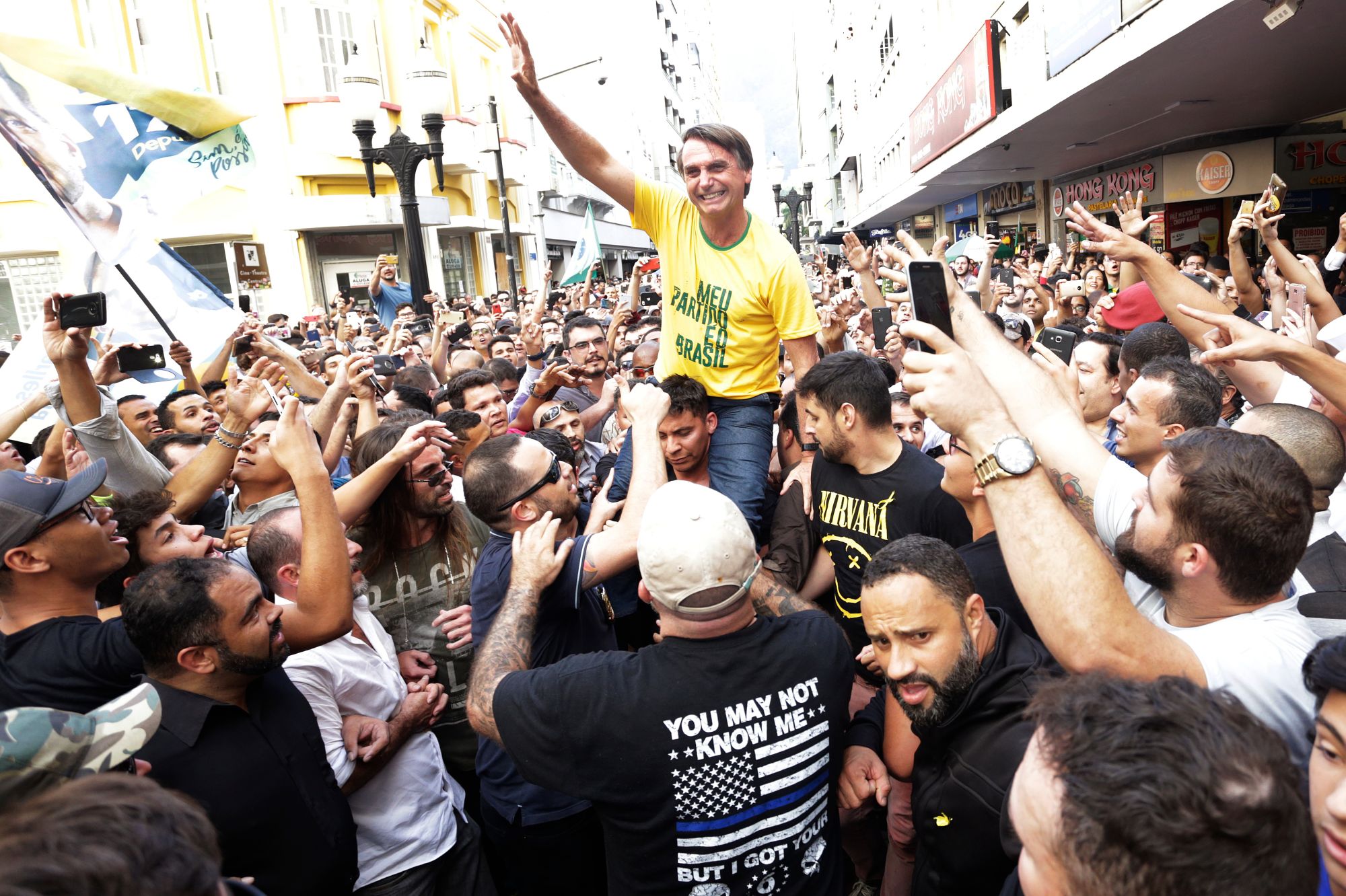The sitting Brazilian president Jair Bolsonaro secured an unexpected 43% vote in the recent first round of the presidential election, close behind his opponent Luiz Inácio Lula da Silva (48%).
Many polling companies had predicted Bolsonaro would not do that well in the first round, and there had even been predictions that Lula could get a clear enough lead to gain an all-out victory. But Bolsonaro bounced back, pulling in enough votes to secure a second round on October 30.
Populist politicians such as Bolsonaro, the UK’s Boris Johnson, incoming Italian prime minister Giorgia Meloni and India’s leader Nahindra Modi have often been seen by their opponents and professional commentators as unelectable and undesirable. And yet they continue to be electorally successful.
Populists manage this in several ways. They advance simple-to-understand messages and ideas that tap into strong emotional desires of a significant section of the population.
They seek to align their public persona with that of an outsider who is fighting against the system, even when this is not a natural fit. (This is how billionaire Trump and privately educated Johnson became seen as men of the people, despite having privileged lives.) And they make powerful use of modern communication methods, which today means the Internet and social media.
The term populist suggests that these politicians are more effective at tapping into public desires than their opponents. There is some truth to this claim. In particular, today’s populist leaders often play on the fact that the post-cold war order had failed to make globalization work for the majority of people.
In the UK’s referendum on European Union membership, Johnson and others advocating to leave the EU understood that a sizeable number of the British public felt left behind by globalization and were fed up with (as they saw it) being dictated to by the EU. Similarly, Trump tapped into “traditional values” and conservative desires within a section of the US public who recalled a world of greater prosperity and job security.
Meanwhile, in India, Modi taps into nationalist pride and sectarian privilege. Bolsonaro seeks to reject progressive politics and return to “traditional family values”.
The outsider myth
In making use of this nostalgia, populists often define themselves and their supporters as outsiders, who have lost out as progressive values have taken over (even when these politicians come from established elites). So, if you are a Brazilian gun owner who opposes gay rights, the rights of Indigenous people and abortion, then Bolsonaro provides you with a ready-made political home.
Similarly, populists use narratives that existing institutions of government and “mainstream” politicians had failed the public. In the case of Bolsonaro, as with Trump, this has clearly resonated well with voters, some of whom have accepted the arguments that government officials and civil servants are lazy, “woke” and keen to meddle in their affairs.
In this way, populist politicians promise to act as “disruptors”, similar to how Amazon has disrupted the retail industry and Tesla is disrupting motor manufacturing. Indeed, subverting the structures of government is an essential part of the populist playbook.
Political scientist Jonathan Hopkins describes this wave of politicians as “anti-system”. Their central premise is to redraw the established political system, nationally and internationally.
Internet tricks
Successful anti-system figures including Trump and Johnson (and importantly their campaign teams) have also harnessed the power of social media platforms such as Twitter, Facebook, Reddit, 8Chan and private messaging apps such as WhatsApp and Signal to nurture politically sympathetic communities. This makes their success, in part, a story about the rise of a new kind of political communications.
Recent political campaigns have been powerful because they use a trick of the Internet to enhance their effectiveness. Social media algorithms work out what we are interested in, what we might be looking to buy, and what we are likely to believe, and then inundate us with those ideas. Politicians who have understood this best have a strong advantage.
Democratic systems seem peculiarly poorly suited to dealing with these challenges, For example, the widespread use of WhatsApp in Indian politics, or persuasive fake websites in the Brazilian election has made it impossible for regulators to check or roll back disinformation in time to prevent harm.
For those seeking to defeat populist politicians, they are faced with a difficult choice of being labeled as candidates of the establishment, or joining anti-system politicians in guerrilla marketing campaigns and sloganeering aimed at radically mobilizing the public.
Even if Bolsonaro doesn’t retain the presidency, his influence, like Trump’s, is not going away any time soon. Their supporters are now installed in high places, in official bodies, courts and state governments, ready to carry on.
Robert M. Dover is professor of Intelligence and National Security at University of Hull
This article was originally published in The Conversation. Read the original article here: https://theconversation.com/bolsonaros-first-round-election-bounce-back-reminds-us-why-populist-leaders-are-so-popular-191718














